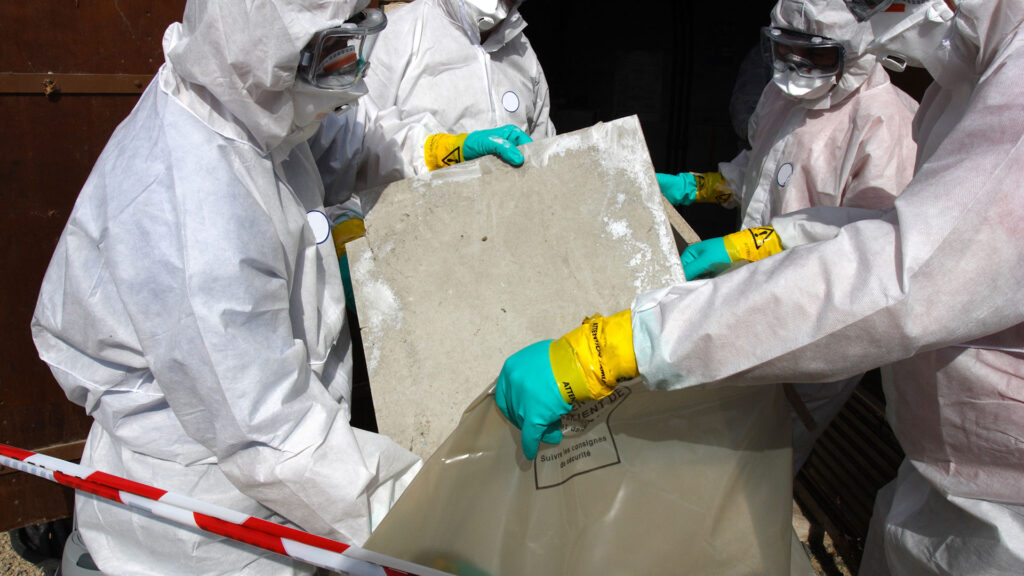Dealing with an asbestos-related disease diagnosis can be alarming and overwhelming. If you or a loved one has found themselves diagnosed with a respiratory disease or cancer related to asbestos exposure in Illinois, it is helpful to understand the state-specific laws for filing asbestos lawsuits. Each state has its own deadlines and rules regarding these types of cases, and being aware of them can significantly affect the success of your claim.
By familiarizing yourself with the specific laws in Illinois, you can ensure you take the necessary steps to protect your rights and seek compensation for your injuries. It is always advisable to consult an experienced Illinois asbestos attorney who can assess your options and guide you through the process.
Contact an asbestos exposure lawyer near you today to discuss your legal options and get started on your asbestos lawsuit.
Understanding Asbestos-Related Diseases
Before delving into the state-specific laws, it’s essential to have a basic understanding of asbestos-related diseases. Asbestos is a naturally occurring mineral historically used in a wide range of industries due to its heat-resistant and fireproof properties. Unfortunately, it is now known that exposure to asbestos fibers can cause serious health problems, including:
- Mesothelioma
- Lung cancer
- Asbestosis
- Other respiratory conditions
Statute of Limitations and Filing Deadlines
One key component of asbestos lawsuits is the statute of limitations, which refers to the time limit within which a lawsuit must be filed. Each state has its own statute of limitations for asbestos-related claims, and it is necessary to be aware of these deadlines to ensure that you don’t miss your opportunity to seek compensation.
The statute of limitations typically starts from the date of diagnosis or the date when the disease should have been reasonably discovered. However, it’s important to note that some states also have a separate start date based on when the individual knew or should have known that their disease was caused by asbestos exposure. In Illinois the statute of limitations for filing a lawsuit related to asbestos exposure injury or death is two years from the time the person reasonably knew or was diagnosed with the disease.
To illustrate the variations in filing deadlines, here are a few examples:
- Missouri: Missouri has a five-year statute of limitations for asbestos-related claims, starting from the date of diagnosis or the date the disease should have been discovered.
- California: In California, the statute of limitations for asbestos-related claims is generally two years from the date of diagnosis or the date the disease should have been discovered.
- New York: In New York, the statute of limitations is three years from the date of diagnosis or the date the disease should have been discovered. However, there is also a discovery-of-injury rule, which allows plaintiffs to file a claim within one year from the date of discovery or from the date that the disease should have been discovered, even if the statute of limitations has expired.
Every state is different, so it is crucial to consult an experienced asbestos exposure attorney to understand your state’s specific statute of limitations and ensure you file your lawsuit within the required timeframe.
Determining Liability
Another critical factor in asbestos lawsuits in Illinois is determining liability. In asbestos-related cases, you will need to show that the asbestos exposure occurred due to the negligence of an employer or the asbestos material manufacturer. Identifying all potentially responsible parties and proving their liability can be a complex process.
Several parties can be held accountable in Illinois asbestos lawsuits, including manufacturers of asbestos-containing products, employers who failed to provide a safe working environment, contractors, property owners, and even the government if the exposure occurred in a public facility.
A skilled Illinois asbestos exposure lawyer will be invaluable during this time. They can thoroughly investigate your case, gather evidence, and determine the appropriate parties to hold accountable for your asbestos-related illness.
Filing Procedures and Legal Requirements
In addition to the statute of limitations and liability, various filing procedures and legal requirements need to be followed when pursuing an asbestos injury lawsuit. These requirements may include:
- Medical Documentation: You will need to provide medical documentation establishing your asbestos-related diagnosis and linking it to your asbestos exposure. This typically involves obtaining your medical records, diagnostic tests, and expert opinions from medical professionals who specialize in asbestos-related diseases.
- Type of Lawsuit: There are different types of asbestos lawsuits, including personal injury claims, wrongful death claims on behalf of a deceased loved one, and asbestos trust fund claims. The type of lawsuit you file will depend on your specific circumstances.
- Venue Selection: Choosing the right jurisdiction to file your asbestos lawsuit is essential. It’s important to consult an attorney familiar with your state’s laws and court systems to determine the most advantageous venue for your case.
- Class Action Lawsuits: In some cases, multiple individuals who have been harmed by asbestos exposure may join together to file a class action lawsuit. This allows plaintiffs to consolidate their claims and pursue justice collectively. Your Illinois asbestos exposure attorney can advise you on whether joining a class action lawsuit is the best course of action for your situation.
Handling the legal procedures and requirements involved in asbestos lawsuits can be overwhelming, especially when dealing with the physical and emotional toll of an asbestos-related illness. This is why seeking the guidance and support of an experienced Illinois asbestos exposure attorney who can handle the legal steps on your behalf is beneficial. An attorney will be with you every step of the way.
Talk to an Illinois Asbestos Attorney Today
When filing an asbestos lawsuit in Illinois, it is essential to be aware of the state-specific laws, deadlines, and rules that may affect your case. Consulting an experienced Illinois asbestos exposure lawyer with a strong track record with these types of cases. This will help ensure you have the correct support throughout the legal process and maximize your chances of receiving the compensation you deserve.
Contact an asbestos attorney near you today to discuss your legal options and take the first step toward justice. Remember, time is of the essence, so don’t delay in seeking legal advice and representation.




